Services are provided for children/adolescent (ages 5-17) who are diagnosed with severe and persistent mental illness. These services include individual therapy, family therapy, psychosocial evaluations, and psychiatric evaluations. The clinicians utilize evidence-based interventions to assist and facilitate optimal functioning and quality of life for the children and families served. Services are provided by a team comprised of social workers, professional counselors, nurse practitioners, physicians, and child/adolescent psychiatrists.
Staff provides and/or arranges for crisis assessments, crisis interventions, and community referrals. We also coordinate with local schools and juvenile justice systems to provide adequate services to assist the child with functioning within the community.
AAHSD contracts with a community-based organization to provide case management for children and families served. Additionally, we participate as active members of the Lafayette and St. Martin Parishes Families in Need of Services (FINS) committees and coordinate Interagency Service Committee meetings (ISC).
What types of treatment are available?
Effective treatment approaches are available. Psychosocial therapies are also called “talk therapies” or “behavioral therapy,” and they can help children and adolescents change behaviors. Play therapy may also be helpful with younger children. Family and parent therapies that teach parents and children coping strategies can also be effective.
Cognitive behavioral therapy (CBT) (an evidence-based practice) is a type of therapy that can be used with children. It has been widely studied and is an effective treatment for a number of conditions and is especially useful when treating depression and anxiety in children and adolescents. Additionally, therapies for Attention Deficient Hyperactivity Disorder (ADHD) are numerous and include behavioral parent training and behavioral classroom management. Other evidence-based practices (EBPs) provided include: Child Parent Psychotherapy (CPP); Behavior Modification; Youth Trauma; and Parent Child Interactive Therapy (PCIT).
Some children may benefit from a combination of therapy approaches in conjunction with medication. A psychiatrist or physician will talk with you about any recommendations for medication for your child. If medication is recommended, the prescriber will also discuss potential benefits and side effects to help you make an informed decision.


